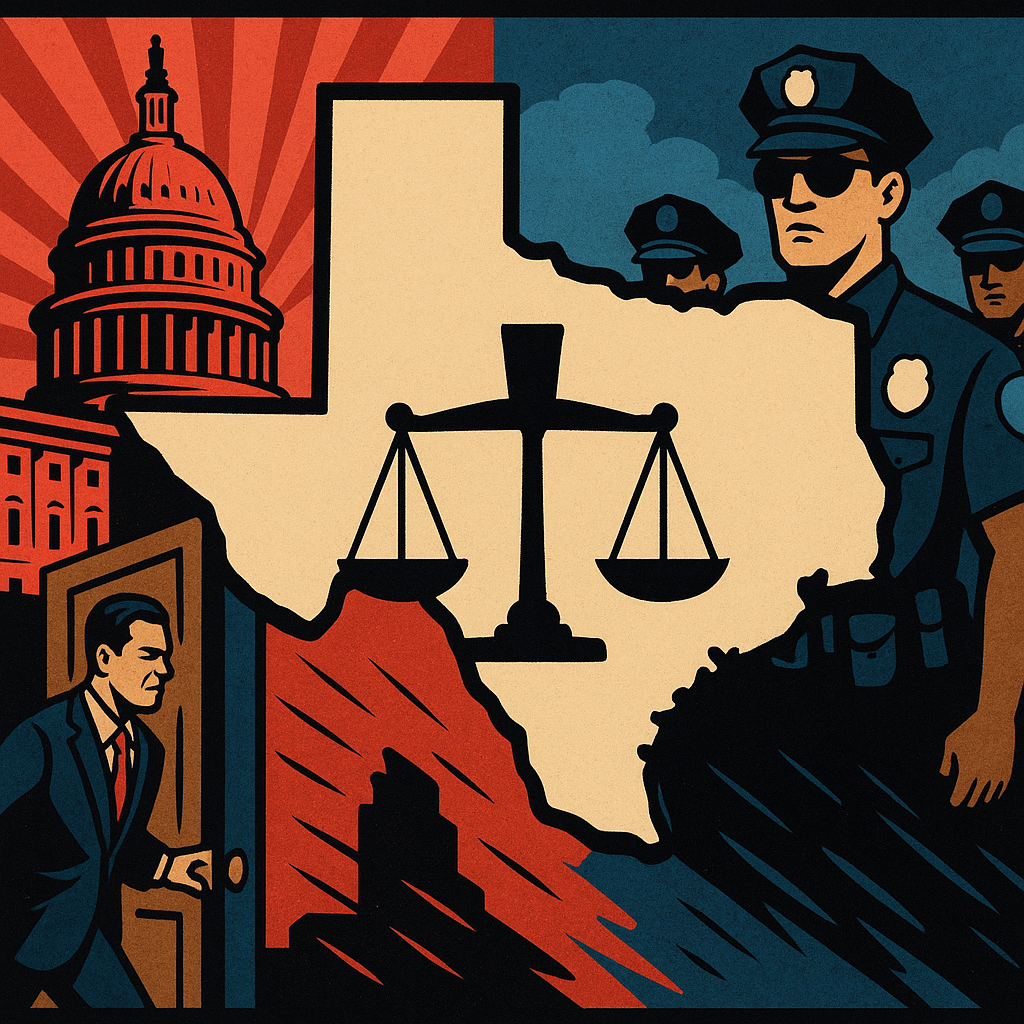The standoff in Austin isn’t just a political drama — it’s a potential flashpoint for business and investment risk in America’s second-largest economy.
In a move stirring nationwide attention, Texas Governor Greg Abbott has ordered law enforcement to apprehend Democratic lawmakers who fled the state in protest of a controversial redistricting vote. The legislation aims to redraw electoral maps in ways that would significantly favor Republican control ahead of the 2026 elections. By leaving the state, Democratic legislators are attempting to deny the GOP the quorum needed to proceed with the vote.
The political maneuvering — and the extraordinary gubernatorial response — reflect growing political polarization in red states, but it also introduces real uncertainty for companies, investors, and sectors heavily exposed to Texas’ regulatory, legal, and policy environment.
Why This Matters for Investors
Texas is a powerhouse economy. If it were a country, it would rank as the 8th largest economy in the world, thanks to its outsized role in energy, technology, manufacturing, and real estate. But with power comes politics — and the current redistricting dispute reveals deeper fractures that could shape policy risk, tax dynamics, energy governance, ESG considerations, and even labor market stability across the state.
The aggressive posture by Governor Abbott may trigger state-level policy shifts impacting not just electoral outcomes, but corporate incentives, infrastructure priorities, and economic development funding — all key factors for institutional and retail investors assessing exposure to the Texas market.
“Redistricting isn’t just about ballots — it’s about budgets,” said political analyst Ana Rodriguez of Eurasia Group. “The political composition of state legislatures can profoundly influence tax policy, land rights, energy oversight, and incentives that businesses depend on.”
Redistricting, Energy, and Regulation Risk
Texas is also the nation’s leading energy producer, home to major players in oil, gas, renewables, and energy infrastructure. While historically pro-business, the increasing politicization of policy could challenge companies navigating environmental regulations, ESG scrutiny, and grid oversight — particularly after the 2021 power crisis.
Redistricting could entrench conservative control for the rest of the decade, shaping decisions over energy permits, tax credits for clean energy, public-private investment models, and labor law reforms. The state’s policy trajectory — already diverging from blue-state ESG frameworks — may become even more ideologically entrenched, impacting how publicly traded companies and venture-backed startups operate.
Market Exposure & Sector Impact
Investors should closely monitor industries with deep roots in Texas:
- Energy: ExxonMobil, ConocoPhillips, Pioneer Natural Resources — policy and regulatory clarity will be essential.
- Semiconductors: Texas Instruments and Samsung’s multibillion-dollar expansion in Austin could face delays or risk if public-private cooperation frays.
- Electric Vehicles: Tesla’s Gigafactory outside Austin remains a bellwether; tax incentives and permitting oversight may shift.
- REITs and Commercial Real Estate: Firms with heavy exposure to Dallas, Austin, and Houston — like Digital Realty Trust or CBRE — could face shifts in zoning, taxation, or development approvals.
Future Trends to Watch
1. Legal Challenges Ahead
Expect lawsuits around voting rights and redistricting fairness. If federal courts get involved, expect political tensions to intensify and investor confidence in local governance to wobble.
2. ESG & Institutional Pressure
Large institutional investors may revisit exposure to Texas-based firms if state policies appear to diverge too far from ESG benchmarks or social governance standards.
3. Labor Market Tensions
Political instability may disincentivize talent inflows, especially in urban hubs like Austin and Dallas, where tech and healthcare labor demand is high.
4. Corporate Political Engagement
Expect more firms — especially tech giants — to weigh in on state politics. Past examples include Dell, American Airlines, and HP responding to social legislation.
Key Investment Insight
Investors with portfolio exposure to Texas-based corporations, energy projects, or commercial assets should carefully monitor how state politics shape the business climate. While Texas remains business-friendly overall, the regulatory predictability and reputational risk are increasingly tied to partisan dynamics. Consider diversifying geographic exposure, or stress-testing Texas-linked holdings under more volatile governance scenarios.
Stay informed on how political developments shape economic landscapes and market trajectories — only at MoneyNews.Today, your daily source for critical investor intelligence.





